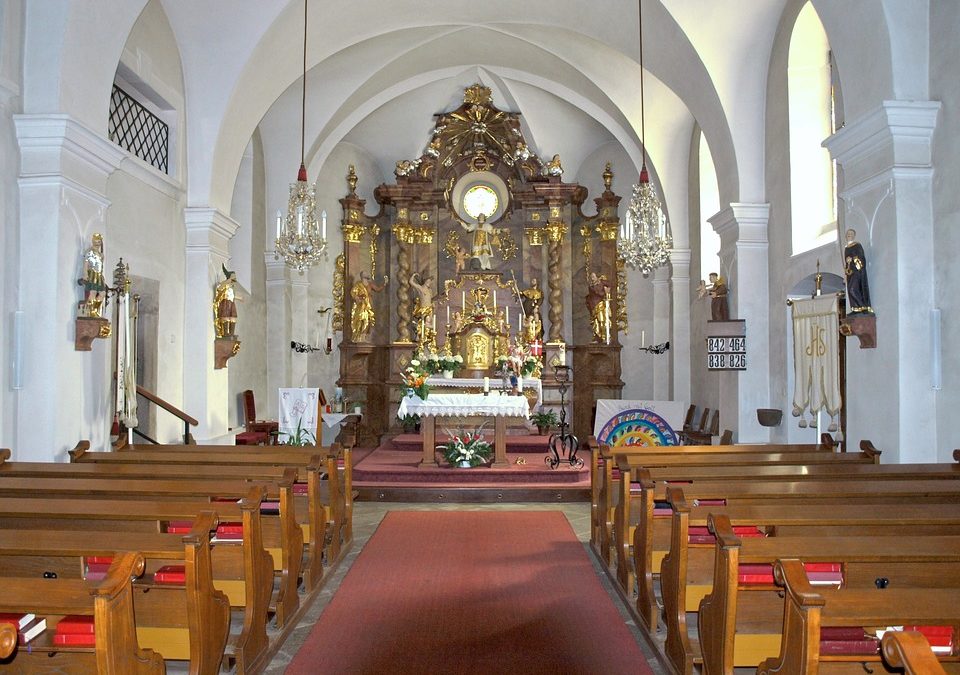Polish parishes are facing mounting financial woes amid the coronavirus lockdown. Key sources of financing, such as offerings during mass and donations from church events, have been curbed.
Poland’s 10,000 parishes have been hit particularly hard by the loss of a key source of funding, from offerings left during services. Under the current restrictions, attendance at church services is limited to one person per 15 square metres of space. Previously, it was a maximum of five people at any religious service. The church itself has also encouraged parishioners to stay at home.
“The offertory is the key source of livelihood for every parish,” a country parish priest from Warka told Rzeczpospolita. “The offerings are used to pay all the parish bills and wages. For six Sundays we have been preaching to empty benches, and so there are no offerings coming in.”
“We now cover all expenses associated with the functioning of the parish from our savings. We will remain financially liquid for only the next three months, and I’m wondering what happens afterwards,” he added.
Spring is usually high season for most Polish parishes, with several celebrations around Easter followed by a string of First Communions lined up in May. However, this year these have been muted, with priests delivering sermons to empty naves and some even walking the streets in lieu of their traditional Easter-time processions.
Meanwhile, churches in tourist towns, which usually see more people coming in the summer, are also worried that the pandemic could overshadow this year’s holiday season.
Father Typrowicz runs a Catholic retreat in Ustrzyki Dolne, a town in Poland’s mountainous south, and uses the proceeds to finance his parish. “We always have more money in the summer, when people come to the mountains for holidays. This year, however, we’re uncertain what will happen,” he told Rzeczpospolita.
“But this year, the house is empty. The government says that tourism will restart soon, but it definitely won’t reach the same scale as before the pandemic,” adds Typrowicz.
The pandemic is also a financial headache for individual priests, many of whom make a livelihood from teaching religious lessons at schools. Others also receive donations for conducting weddings, baptisms and funerals, which have now been downscaled. All other workers involved with organising these church events, such as organ players, are also short for work – and cash.
Yet each parish’s finances are part of a larger ecclesiastical web of accounts. Part of each parish’s income is given to the curia, which uses the funds to finance its seminaries, curial departments and episcopal courts. Some bishops have exempted parishes from paying either some or all of such fees for the time of the lockdown, reports Rzeczpospolita.
A share of each parish’s income also feeds into the coffers of the Episcopal Conference of Poland (KEP), a central organ of the church composed of cardinals, archbishops and bishops.
The Catholic church initially refused to cancel masses early in the crisis, though it issued exemptions for the elderly, sick and children, as well as holding more services so as to reduce the numbers attending each one. Later, however, as the pandemic situation worsened, the government restricted attendance at religious ceremonies, such as masses and funerals.
Main image credits: WikimediaImages/Pixabay (under Pixabay License)

Maria Wilczek is deputy editor of Notes from Poland. She is a regular writer for The Times, The Economist and Al Jazeera English, and has also featured in Foreign Policy, Politico Europe, The Spectator and Gazeta Wyborcza.




















